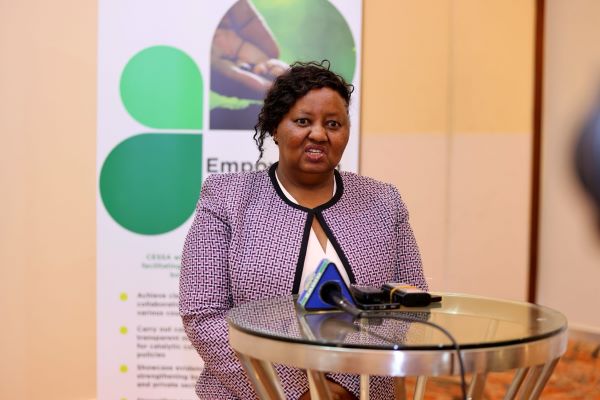The Alliance for a Green Revolution in Africa (AGRA), in collaboration with the Food and Agriculture Organization (FAO) of the United Nations, has launched a US$580,000 initiative to transform South Sudan’s fragile seed sector into a resilient and competitive ecosystem that better serves farmers and drives agricultural productivity.
The project, titled “Support Towards Improved Seed Sector Performance and Competitiveness in South Sudan,” is funded by the Royal Norwegian Embassy and guided by AGRA’s Seed Systems Assessment Tool (SeedSAT), a diagnostic tool developed under the AGRA Center of Excellence for Seed Systems in Africa (CESSA).
Unveiled at an inception workshop in Juba, the initiative aims to conduct a comprehensive national seed system assessment, strengthen seed production and distribution, support legal and policy reforms, and build capacity among seed producers and youth-led agricultural enterprises.
Prof. Mathew Gordon Udo, Undersecretary of the Ministry of Agriculture and Food Security, described the initiative as “timely and transformative,” noting its alignment with national goals for food and nutrition security, job creation, and youth empowerment.
Dr. Jane Ininda, AGRA’s Director for Seed Systems, emphasized collaboration: “Seed systems are the backbone of agricultural transformation. Through SeedSAT, we are not just diagnosing gaps—we are co-creating solutions with national stakeholders to build resilient, inclusive systems that serve farmers better.”
The initiative builds on over a decade of AGRA’s work in South Sudan, which previously led to the release of 37 resilient crop varieties, the training of 12 plant breeders, and the development of a commercial seed sector producing over 1,700 metric tonnes of seed annually.
Christianne Nyakato Kivy of the Royal Norwegian Embassy called the launch “a significant step toward building a resilient and competitive seed system” and underscored its potential to empower smallholder farmers.
The program will assess eight key components of South Sudan’s seed system—from breeding and certification to market distribution and policy alignment—and support the review of the Seed and Plant Variety Bill to enable a stronger regulatory framework.
FAO’s Country Representative, Meshack Malo, said the project will “empower farmers and the private sector to drive sustainable growth,” highlighting its focus on high-quality, climate-smart, and nutrient-dense crop seeds.
In addition to technical reforms, the initiative also prioritizes youth inclusion, training young people and integrating them into the seed value chain to create sustainable employment opportunities in agriculture.
The SeedSAT rollout will include stakeholder mapping, technical training, and collaboration with the Seed Traders Association of South Sudan (STASS) to improve capacity, ensure quality assurance, and scale up certified seed production to meet growing national demand.


